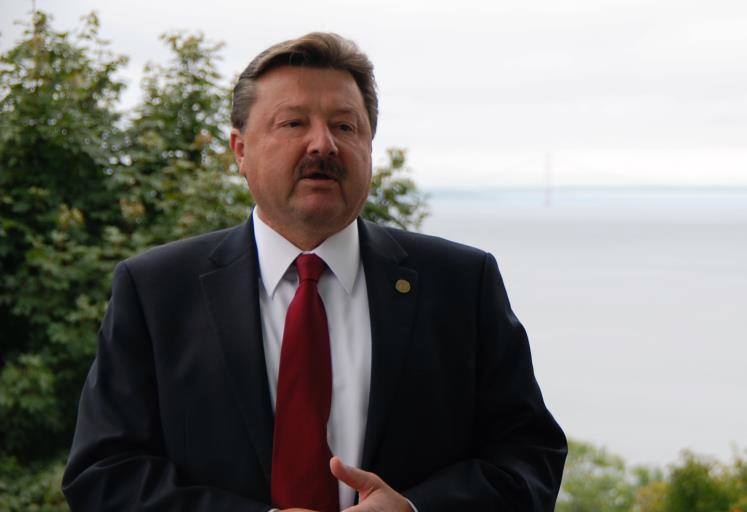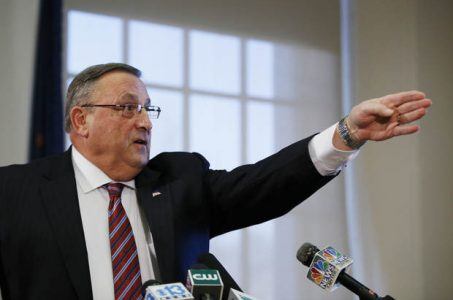Proposed Michigan Online Gambling Bill Would Only Authorize Internet Betting Inside Land-Based Casinos
Posted on: April 10, 2017, 04:00h.
Last updated on: April 10, 2017, 02:24h.
The proposed Michigan online gambling bill that was introduced in early March by State Senate Majority Leader Mike Kowall (R-District 15) has hit a roadblock that has the potential to send the legislation way off course.

Senate Bill 203 had been gaining support in the Michigan capital, but the revelation this week that gambling expansion must be approved by voters, not only state lawmakers, is certainly a setback. Kowall’s statute would permit the current three commercial casinos in Detroit and Native American groups with state compacts to engage in online gambling and poker.
However, in an analysis of SB 203 completed this month, the argument is that the legislation could be considered unconstitutional.
“Under Article 4, Section 41 of the Michigan Constitution, any law enacted after January 1, 2004, that authorizes any form of gambling must be approved by a majority of voters in a statewide election,” the analysis details.
Law Matter of Opinion
In the bill’s legal scrutiny, which was authored by Drew Krogulecki, a legislative analyst in the Michigan Senate Fiscal Agency, a response is provided to the potential unconstitutional basis of SB 203.
Krogulecki says the assertion can also be made that Michigan law specifically exempts the commercial casinos and Indian groups from Article 4, Section 41’s oversight. Since it’s the licensed casinos that would be permitted to engage in online gambling, voter approval wouldn’t be required.
Should the opinion that voter consent is indeed required, Kowall’s law, if passed and signed into law, would allow online gambling to commence only for patrons who are physically located within the confines of the land-based casino. Though fiscal estimates suggest Michigan online gambling authorization could generate $30 million a year for the state once the market matures, the casinos likely won’t be willing to pay a $100,000 per year licensing fee to allow their hotel guests to gamble from the comforts of their rooms.
Tribes Voice Opposition
Kowall said recently that he’s “cautiously optimistic” regarding the chances of SB 203. Those odds might now be tilting against the Senate majority leader.
In addition to state constitutional concerns, there’s also the fact that some Native American groups with casinos in Michigan strongly oppose the legislation. In a joint letter from the Nottawaseppi Huron Band of the Potawatomi and Saginaw Chippewa Indians, the tribes argue they already have the right to offer internet gaming on their sovereign lands and do not need the state’s costly license.
The two groups respectively own the FireKeepers Casino Hotel and Soaring Eagle Casino and Resort.
“By failing to recognize that Indian tribes are already authorized to conduct on reservations internet gaming under both the Indian Gaming Regulatory Act and the Unlawful Internet Gambling Enforcement Act, the legislation would curtail these lawful aspects of Indian tribal gaming,” the tribes opined.
With much legal uncertainty, the safe bet might be that Nevada, New Jersey, and Delaware will remain the only three US states with some form of legalized online gambling in the near future.
Related News Articles
Most Popular
FTC: Casino Resort Fees Must Be Included in Upfront Hotel Rates
Genovese Capo Sentenced for Illegal Gambling on Long Island
NBA Referees Expose Sports Betting Abuse Following Steve Kerr Meltdown
UPDATE: Former Resorts World & MGM Grand Prez Loses Gaming License
Most Commented
-
UPDATE: Whiskey Pete’s Casino Near Las Vegas Closes
— December 20, 2024 — 30 Comments -
Caesars Virginia in Danville Now Accepting Hotel Room Reservations
— November 27, 2024 — 9 Comments -
UPDATE: Former Resorts World & MGM Grand Prez Loses Gaming License
— December 19, 2024 — 8 Comments -
FTC: Casino Resort Fees Must Be Included in Upfront Hotel Rates
— December 17, 2024 — 7 Comments
















No comments yet